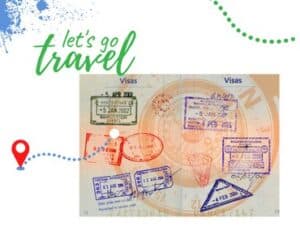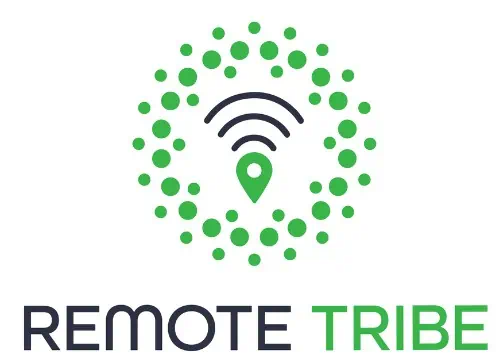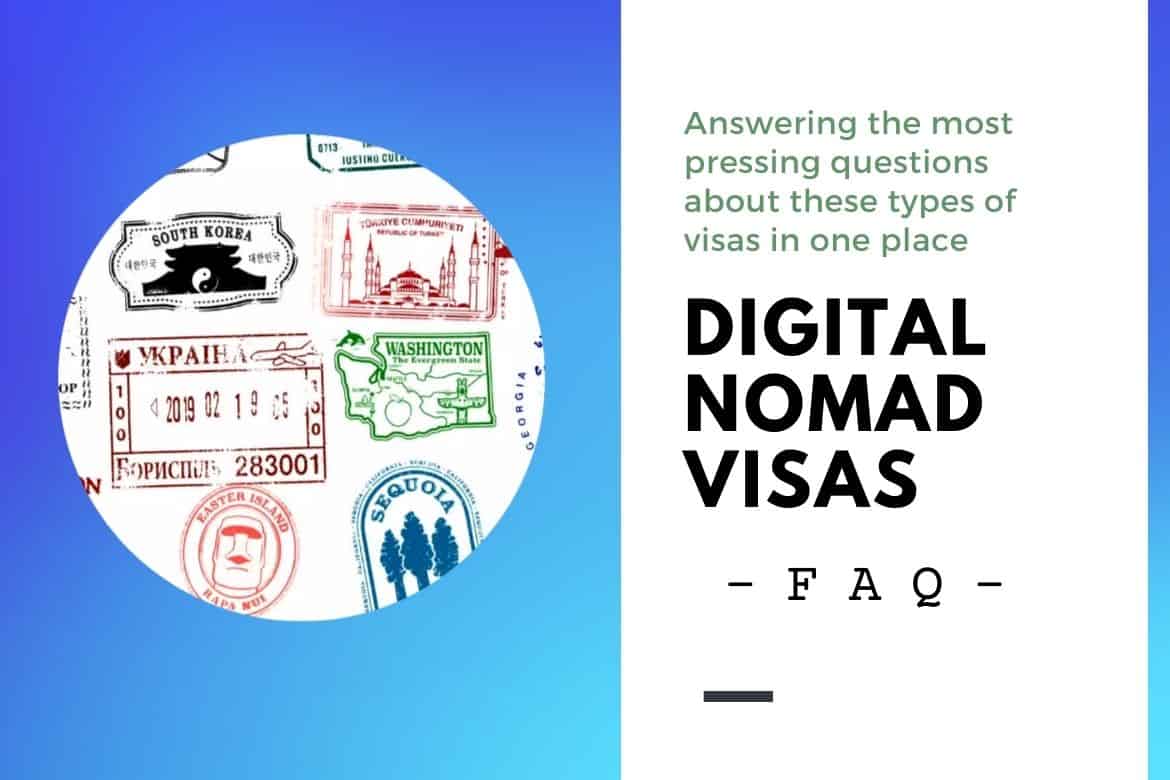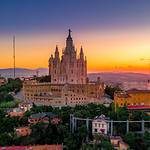Addressing The Most Looked for Digital nomad visa questions
Are you thinking of making the jump to digital nomad life? Or are you already living the remote work lifestyle? If so, you might have some questions about visas. Do you need one? Can you get by on a tourist visa? What’s the best way to go about getting a long-term visa for digital nomads?
In this post, we’ll answer the most common questions about digital nomad visas. We’ll break down which countries offer special visas for digital nomads and ex-pats, and we’ll give you some tips on how to go about securing a long-term visa. So whether you’re just starting to research your options or you’re ready to start applying for visas, this post has got you covered!
1. What is a digital nomad visa and who needs one?
Digital Nomad visas were created for the so-called “digital nomads”, the people who work entirely remotely using digital technologies. A digital nomad may work out of cafes, beaches, airbnbs, coliving spaces, or hotel rooms, and from anywhere in the world, as they are not tied down to any one location.
A digital nomad visa legally allows visitors to work remotely for a foreign country and receive foreign income for an extended period, in most of cases without being taxed by the local authorities. Several countries all over the world offering offer today such long-term stay arrangements to work digitally abroad, from Brazil to Thailand and Spain.
2.What are the benefits of having a digital nomad visa, and what are the restrictions?
There are a few major advantages of holding a digital nomad visa or visa. The main benefit of these programs is that you can enjoy a long vacation while maintaining a stable source of income without putting your career on hold. Moreover, remote workers make use of the income geo-arbitrage by earning in strong currencies and living in cheaper countries (some would call them less developed).
Most regions that offer digital nomad visas already have the infrastructure necessary to support remote workers, such as strong wifi as an attraction point, but also good flight connections, an existing DN community, and coworking spaces (even though this is not a top priority for nomads).
Travelling and working having a digital nomad visa can make your life much better and less stress and hustle-free.
When it comes to restrictions and disadvantages, there are quite a few that you should be aware of. Probably the most important one is that most of them last for 1 year and after that period you will need to enter the country on a tourist or business visa just like everyone else. Another thing you have to keep in mind is that some of them can cost up to 1000 USD and more so not all of them are that cheap.
3. How much does a digital nomad visa Last?
Considering there are over 40 visas, the answer is…it depends a lot. They come in different flavors, starting from just 6 months like in South Africa, and up to 10 years in Thailand. You’ll have to do a cost-benefit analysis between how much time you want to spend in that country, how much the visa will cost, and the cost of living. Most digital nomad visas will be emitted for 6 months or 1 year.
You’ll have to check the websites of the embassies or the online consulate of the country you want to apply for. Most countries show the visa on their official websites but sometimes they are not easy to find.
A much easier way to use our visa finder tool. Just go through the questionnaire, choose the number of months you want to stay abroad and a few other bits and the wizard will give you a few options and details about the visa.
See what visa you qualify for!
Our visa guide takes less than 1 minute to fill and will tell you what visas you qualify for!

4. How much does a digital nomad visa costs?

The fees for most of these visas are actually not that high and some are even free. For example, applying for a digital nomad VIsa for Estonia or the Czech Republic is free; for countries like Croatia and Cyprus, the price varies between 50-300 euros.
When it comes to more “exotic” places like Caraibeans Islands or Cayman then the fees go up significantly. For example, in the Island nation of Granada, the digital nomad visa will cost you about $1,500 per person.
Ok, so what’s the trick then? Why isn’t anyone getting these visas like hotcakes? Well, you need to qualify for the requirements; the bar is pretty high in some cases. More on this below.
5. Can you work while on a digital nomad visa, and how long can you stay in the country?
Yes, you can work in the country where you live on a digital nomad visa. That’s one of the main benefits of this type of visa. However, as a rule of thumb, most countries have a rule built into this visa where you must be employed by a foreign company and not a local one from the country you are in.
Most of the visas are either 6 months to one year long or in some cases even longer. Within that timeframe, you can live there for the entire duration of the visa or you can travel abroad multiple times and come back because these visas allow more than one entry.
6. Digital Nomad Visa Requirements

There are 3 main requirements most countries have in place to issue a digital nomad visa.
- A monthly/yearly salary OR passive income or revenue from freelancing or business.
- A certain amount of money in the bank account to prove you can sustain yourself (in case you do not have a constant income).
- Proof of employment from your current employer.
7. How long does it take to get a digital nomad visa

It usually takes a few weeks for the consulates or embassies to process your application. It's rare that it will take more than 2 months but of course it can happen due to holidays or internal staff issues in the consulate.
See what visa you qualify for!
Our visa guide takes less than 1 minute to fill and will tell you what visas you qualify for!

8. What are some of the best countries to get a digital nomad visa in, and how much does it cost?
 Malaysia - Fee $212 - 1 Year
Malaysia - Fee $212 - 1 Year
Why we love it: relative low cost of living, good quality of live, safe, english widely spoken, great flights connections with Asia and Europe.
The DE Rantau programme aims at establishing Malaysia as the preferred digital nomad hub in ASEAN while boosting digital adoption and promoting digital professional mobility and tourism across the country.
The DE Rantau programme will benefit both local talents and foreign nomads via the creation of a vibrant ecosystem that supports digital nomads. Digital nomads can travel and work remotely across various locations in Malaysia, while having access to stable broadband connectivity and various other facilities and services that support the nomadic lifestyle.
 Georgia - No Application Fee
Georgia - No Application Fee
Why we love it: relatively low cost of living, good quality of life, safe, English widely spoken, great flight connections with Asia and Europe.
Georgia is a very interesting land with a mix of Asian and Eastern European cultures a gorgeous natural landscape and beautiful traditions. With fast and cheap wifi, and low prices for accommodation, Georgia has attracted digital nomads for years now.
Georgia has grown lately into a digital nomad hub and continues to attract freelancers and entrepreneurs to take advantage of the country’s beauty, friendliness, and affordable prices.
One of the greatest advantages is that you can become a tax resident when you stay in Georgia for at least 180 days during the year. This means if you make less than $155,000 per year, you will only pay 1% in taxes.
 Thailand - £1200 Fee - 10 year Visa, Renews Yearly
Thailand - £1200 Fee - 10 year Visa, Renews Yearly
Why we love it: relative low cost of living, great beaches and weather during the winter season, fantastic food, great value for money.
Officially called the Long Term Residence Visa, it is very exclusive. Unlike other digital nomad visas available, the Thailand digital nomad visa is very strict with the requirements.
- Valid Passport – Your passport must be valid for at least six months at the time of collecting the visa
- Earn $80,000/year – You must meet the income requirement for the last two years or $40,000 per year in the last 2 years but you also need a Master’s Degree.
- Health Insurance – You must have health insurance coverage of at least $50,000 in Thailand
- Work as a Remote Employee – You must work for at least three years at a publicly traded company or a company that generates at least $150 million in annual revenue
OR
- $1 Million in Financial Assets – You may apply if you can prove your financial assets meet the minimum required amount
 Brazil - Fee Unknown, Duration 1 Year
Brazil - Fee Unknown, Duration 1 Year
The fifth largest country in the world, Brazil offers a variety of landscapes and cultures. From its bustling cities to lush rainforests covered with tropical fruit trees or high mountains – there’s something here for everyone!
To escape into nature enthusiasts can head out on one of the many trails that dot this vast landscape while those looking forward to food might want to visit one of s closest vineyards where they’ll be served dishes such as feijoada (a traditional Brazilian dish made from black beans) pulled pork sandwiches wrapped inside leaves torn from palm branches lit by fire
In order to get the Brazilian remote worker visa, you must prove that your income comes from sources outside of Brazil through an employment or service contract or other documents proving a link with an employer.
In addition, the minimum income requirements are at least $1,500 a month, or you must have to show a bank deposit of a minimum of $18,000 in a bank account for a single applicant. There is no clarity in regards to the requirements are for couples or family dependents nor what is the actual fee of the visa application.
You also must hold private medical insurance valid in Brazil and submit a criminal clearance certificate from your country, amongst others.
 South Africa - Fee Unknown,
South Africa - Fee Unknown,
Why we love it: great surfing, nice food, and wine, good weather all year round, superb natural landscapes.
From the rolling grasslands of KwaZulu-Natal to the stunning coastlines in Cape Town, South Africa has something for everyone looking to satisfy their wanderlust. The country is home not only to iconic wildlife such as big five game animals but also breathtaking landscapes and unique ecosystems like no other place on earth!
The South African visa for digital nomads is not available at the moment but applications from all over the world will be considered. Even though the minimum monthly income amount is not known at the moment, the internet is pricing it at around $3,000 per month
It is also likely the applicants need to show proof of work and medical insurance.
South African government just announced the proposal for the visa in April 2022, so it will take some time before it comes into effect. We’ll update this page as soon as the steps to apply are confirmed.
9. Which are the cheapest digital nomad visas?
A lot of the digital nomad VISA programs are free. You can find them as well as the cheapest ones in the list below:
- Georgia
- Croatia
- Czech Republic
- Greece
- Latvia
- Dominica
- Malaysia
- Mauritius
10. Do Canada, Australia and Ireland have a digital nomad visa?
No, unfortunately, none of these countries has a digital nomad visa at the moment. Make sure to come back or subscribe to our newsletter to find out when they will be available.
See what visa you qualify for!
Our visa guide takes less than 1 minute to fill and will tell you what visas you qualify for!










